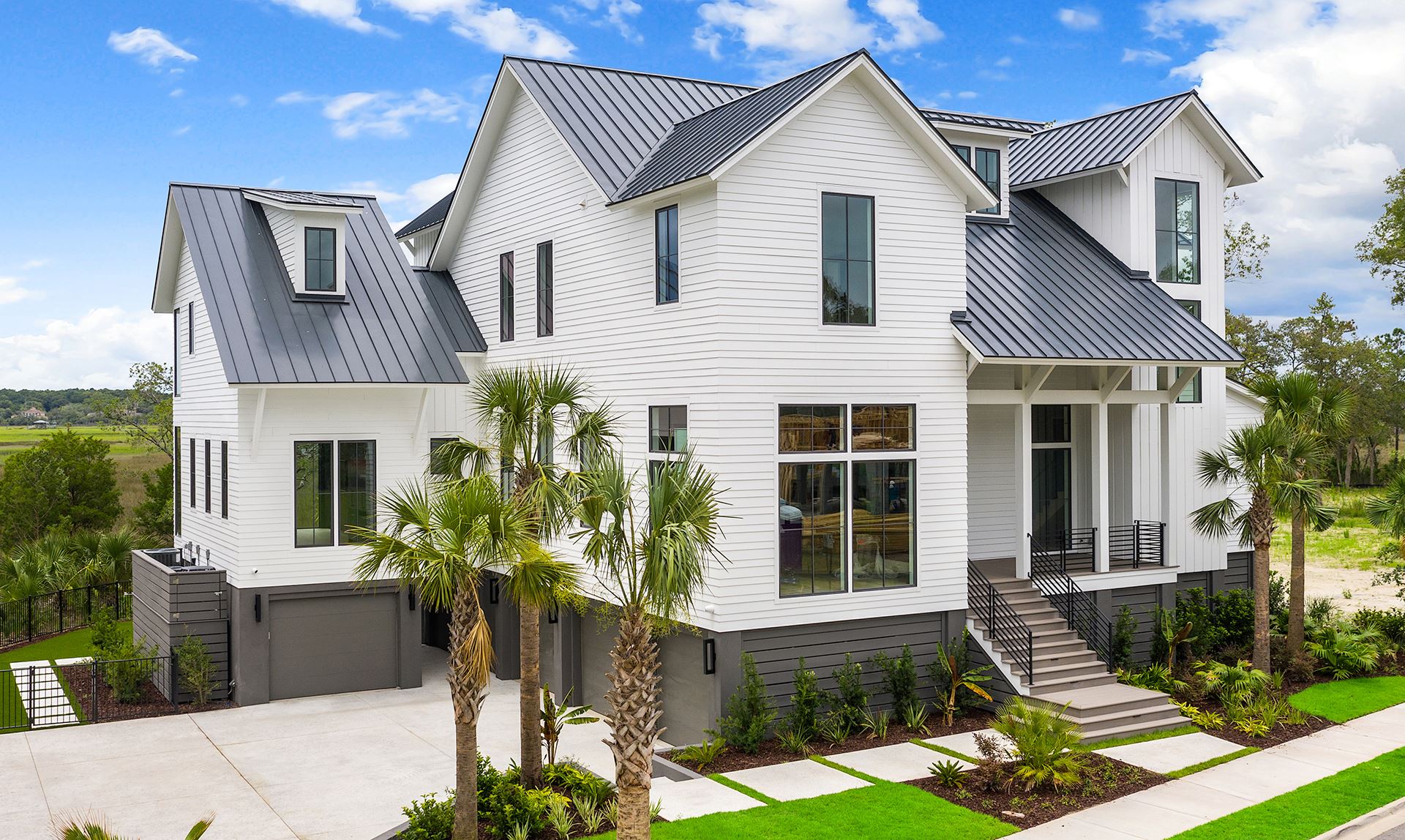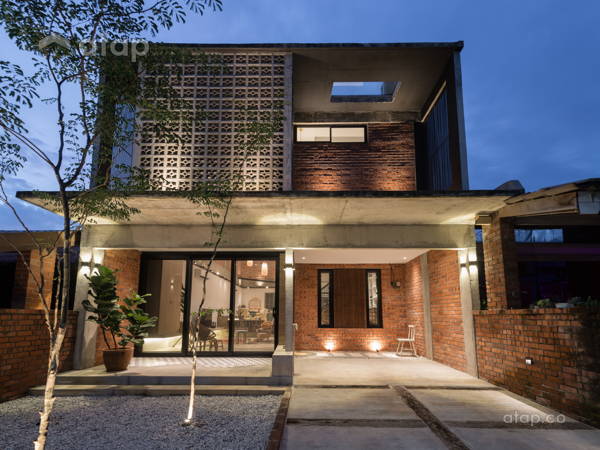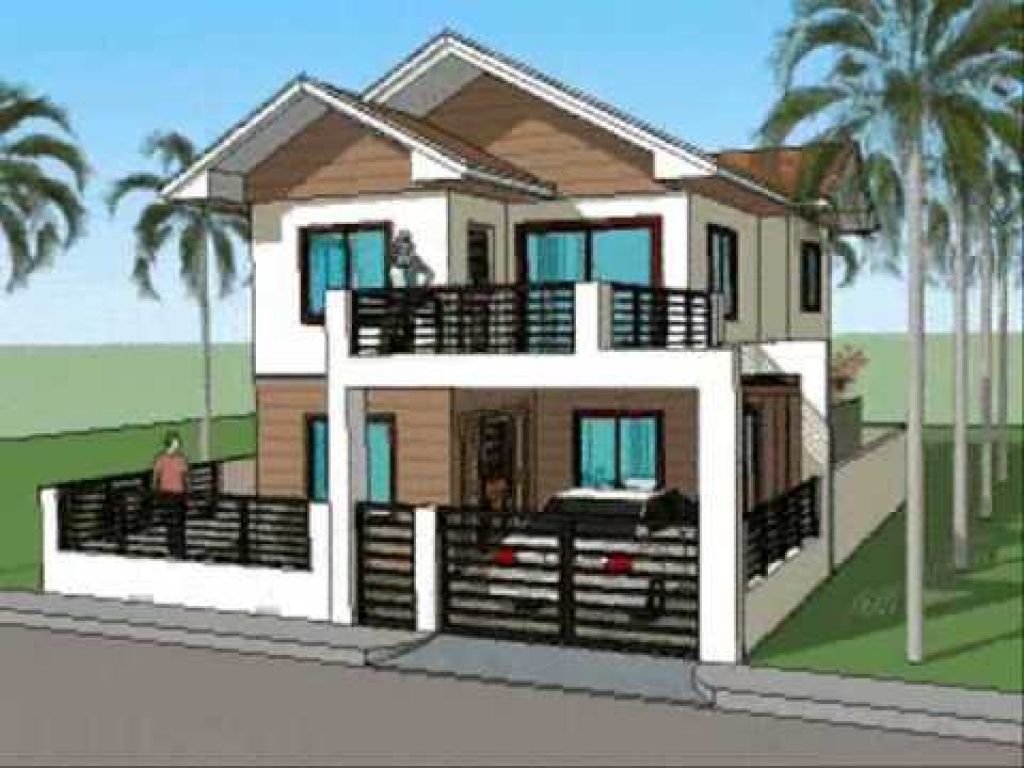
If you choose to build an industrial-style home, there are many exterior design options. There are many material options available, including wood, concrete and brick as well as metal and old lanterns. The idea is to keep the aesthetics in mind while figuring out what will work best for your home.
The industrial style has a lot to offer, from a comfortable home to an appealing facade. The owner can mix modern styles with old-fashioned architectural details. It is a great way to take advantage of an old warehouse or industrial building. This type of house has a modern design that uses bold geometric shapes and clean lines while still using neutral colors. It's easy to decorate the interior. Find a design you like.
The large, glass-enclosed door and window is one of the most distinctive features of an industrial house. The large window lets you peek inside and gives you a glimpse at the landscaping.

The exterior garage is another impressive feature in an industrial-style home. The garage is designed to allow two cars to be parked inside. The large door is accented with wall-mounted, industrial-style lamps.
An L-shaped backyard is another striking feature in an industrial-style house. The house's exterior is surrounded by tall pine trees. It is also flanked by an L-shaped concrete walkway with Aloe Vera plants and shrubs. The homeowner can access his or her outdoor space easily with this functional design.
This design uses a red brick wall as a divider. Modern uses of this material are possible. The concrete slab that is used for the walls has holes. Its unique design blends well with other exterior elements of the house. The wooden fences compliment the wooden exterior walls.
There are many things that the industrial style can boast beyond the glass windows, doors and impressive design. The interior of the house is spacious, and there are several compartmentalized sections. The interiors have recessed lights and a large white ceiling. The kitchen, which is integrated into the dining room, has a leathered stone backsplash. A sleek stainless steel appliance is also part of the industrial-style kitchen design.

Another notable characteristic of an industrial house is its modern architecture. The interior of the house features a high ceiling, an open floor plan, and plenty of large glass windows. Among the other features are an open kitchen, a spacious living area, and an outdoor kitchen. This is a perfect home for entertaining. The outdoor patio features a pool and barbecue grill as well as a fire pit.
A L-shaped driveway and grassy lawn are other features of an industrial style home. This allows the homeowners to have a more private place to live. This style of house is popular with professionals, as it gives them an independent, private housing option. Many professionals choose to live in bachelor's apartments. These professionals want a place that allows them to be completely alone but also offers privacy. Industrial style allows you to escape the hustle and bustle of everyday life while still allowing for privacy.
FAQ
What should I fix first when renovating a house?
Clean out your home and get rid of all clutter. Next, clean out any moldy areas. Finally, you will need to wash the exterior surfaces clean and paint.
Is there anything I could do to save on my home renovations?
It is possible to save money by doing the work yourself. Reduce the number and frequency of people you hire for the renovation. You might also look for ways to decrease the cost and use of materials in the renovation.
How can I find a reliable contractor?
Ask family and friends to recommend contractors. You can also look online for reviews. Make sure that the contractor you choose has experience in the area of construction that you are interested in. Check out references and ask for them to provide you with some.
Are permits necessary to renovate my property?
Yes. Before you start any home improvements project, permits are necessary. In most cases you will need to have a building permit along with a plumber's permit. A zoning permit may be required depending on what type of construction you are doing.
Statistics
- Design-builders may ask for a down payment of up to 25% or 33% of the job cost, says the NARI. (kiplinger.com)
- It is advisable, however, to have a contingency of 10–20 per cent to allow for the unexpected expenses that can arise when renovating older homes. (realhomes.com)
- They'll usually lend up to 90% of your home's "as-completed" value, but no more than $424,100 in most locales or $636,150 in high-cost areas. (kiplinger.com)
- The average fixed rate for a home-equity loan was recently 5.27%, and the average variable rate for a HELOC was 5.49%, according to Bankrate.com. (kiplinger.com)
- ‘The potential added value of a loft conversion, which could create an extra bedroom and ensuite, could be as much as 20 per cent and 15 per cent for a garage conversion.' (realhomes.com)
External Links
How To
Five Things You Need to Know Before You Begin Your Home Renovation
-
Is this something you really want? If you're planning on embarking on major home improvement projects like renovating your kitchen, bathroom, or building a brand new house, it's certain that you'll need to have some assistance. However, if you feel unsure about your ability to complete such a big task by yourself, you might consider hiring someone to help you. It could take up a lot of your time and money, and you won't get any real benefits from it. Instead, you can hire someone who knows their stuff to help. They will help you save time and stress and still give you a beautiful home to live in.
-
What amount should I spend on a renovation project? - This one might seem obvious, but spending too much on a renovation project could actually make matters worse. This is because most of the cost will be recouped at the end. So if you've got a budget in mind, stick to it! If you don't, you might end up spending a lot of money and not receiving anything.
-
Do I prefer to hire professionals or DIY? - There is no right or incorrect answer. However, we recommend hiring professional tradespeople when you can afford them. They'll give you the best advice possible on how to proceed with your particular project. For example, they'll be able install the plumbing correctly, ensure that everything is done safely, and provide you with a warranty when they finish their work. On the flip side, DIY projects usually involve lots of trial and error, which means you'll have to learn a lot of lessons the hard way. Additionally, you will have to deal all manner of problems that can arise along the way.
-
How much can I afford it? - Do not underestimate how expensive a renovation project will cost. Even if the project seems manageable, it could prove costly and you will need to borrow money. You should also consider the cost of selling your property if you plan to move soon after the renovations are completed.
-
Which place should I start? - When it comes to choosing where to start, there's no right or wrong place. But we suggest you choose something that you enjoy working on. This will help you stay motivated and make it less likely that you procrastinate. Avoid areas that require constant maintenance. For instance, you shouldn't attempt to redecorate your living room if you're constantly dealing with dust and dirt.